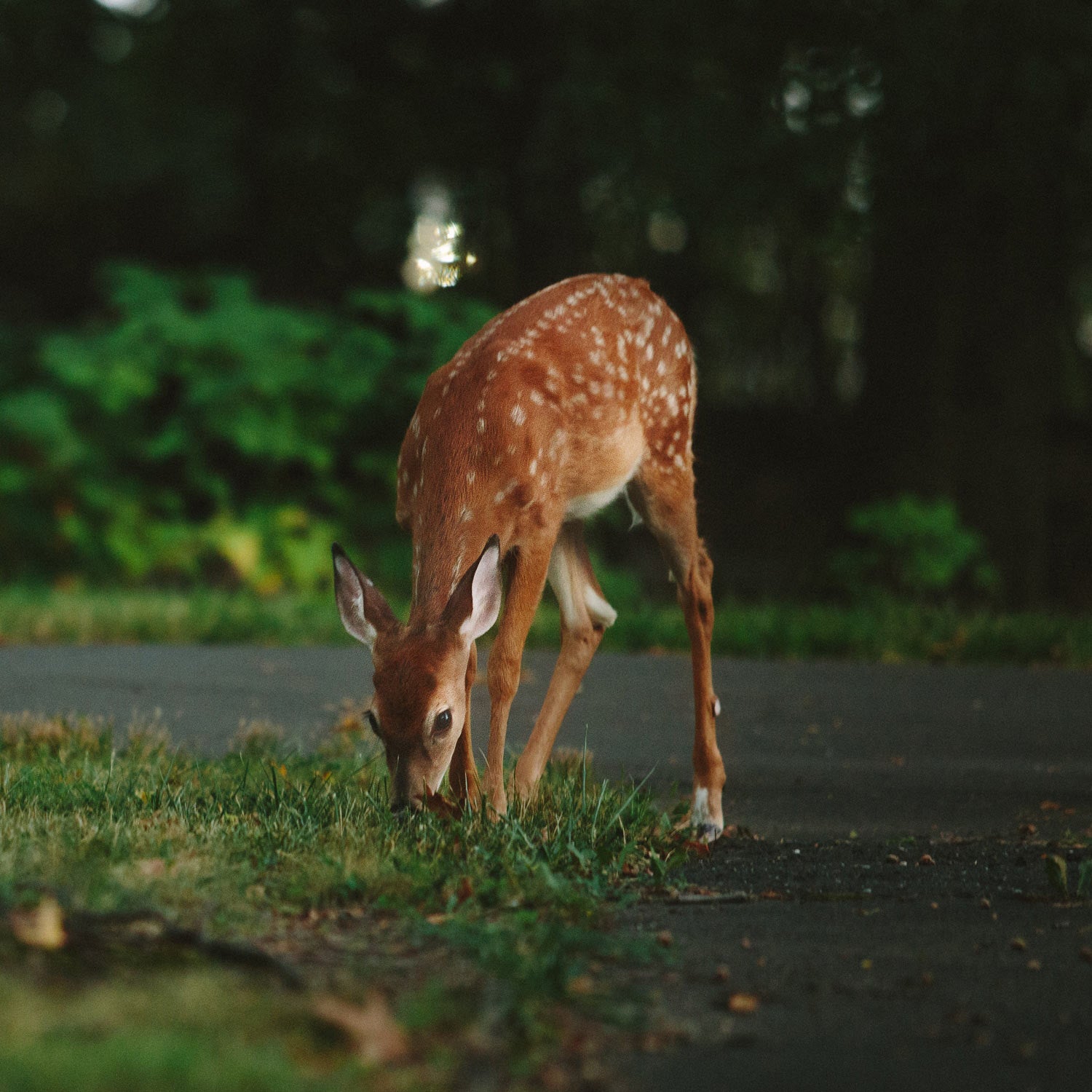This Saturday, at the Hotel Vermont’s in Burlington, guests will get a crash course in eating local. The dinner will include a range of wild game, including beaver, goose, and lake trout. Some of it will be donated by local hunters, but the venison and moose are coming compliments of Vermont drivers.
Vermont has a long and proud tradition of license-plate-to-dinner-plate dining. The Vermont Fish and Wildlife Commission has been retrieving and distributing meat for many years, says Louis Porter, Commissioner of the department. “Informally or in a more organized way, this has been going on for a very long time,” he says, adding that other states have similar programs.
It works like this: When a motorist in Vermont hits a deer, moose or other large animal, he or she is urged to call it in to either the highway patrol or the Fish and Wildlife Commission. A warden for the district will go out and try and find the animal. “Our wardens do a tremendous job at trying to prioritize cases where the animal may still be suffering,” Porter says. If the animal is still alive and mortally wounded, the warden will kill it. If it’s recently dead, the warden will determine whether its meat is still safely edible or not. (If there’s any doubt, it’s discarded.)
This meat is then donated, usually to local churches or firehouses. “The wardens also often donate it to families in their community that they know are in need,” says Porter. “All our wardens live in their communities, and generally they keep a list of families that might need it.”
This weekend, though, the road kill donations are headed to the . And it looks like Burlington residents are interested: The dinner is nearly sold out and Executive Chef Doug Paine says he may turn this into a regular or at least annual event.
Paine says he’s wanted to bring a traditional game supper to the Hotel Vermont for quite some time. “Typically this is something that would be done in a rural setting,” he says. By bringing it to Vermont’s largest city, Paine hopes to get people interested in connecting more with their food. “We want to raise awareness around people being involved with the environment. We’re part of the environment, we don’t travel around in little bubbles.”
Paine hasn’t worked with meat that met its end via the front of a Mitsubishi before. Per state laws, all the meat will be professionally butchered—which is smart, since the impact from a car could result in shattered bones and ruptured organs affecting the meat. For that reason, Commissioner Porter recommends that all Vermonters involved in accidents with wildlife consult with a game warden before scooping up their roadside bounty.
If, however, the game warden rules it safe to consume, both Paine and Porter say that they hope you’ll try it. “There’s no greater connection to the land and the landscape than having it sustain you,” Porter says. “It’s a pretty direct and understandable connection.”


